A Trainer's 11 Tips To Stay Fit In Your 80s & Beyond
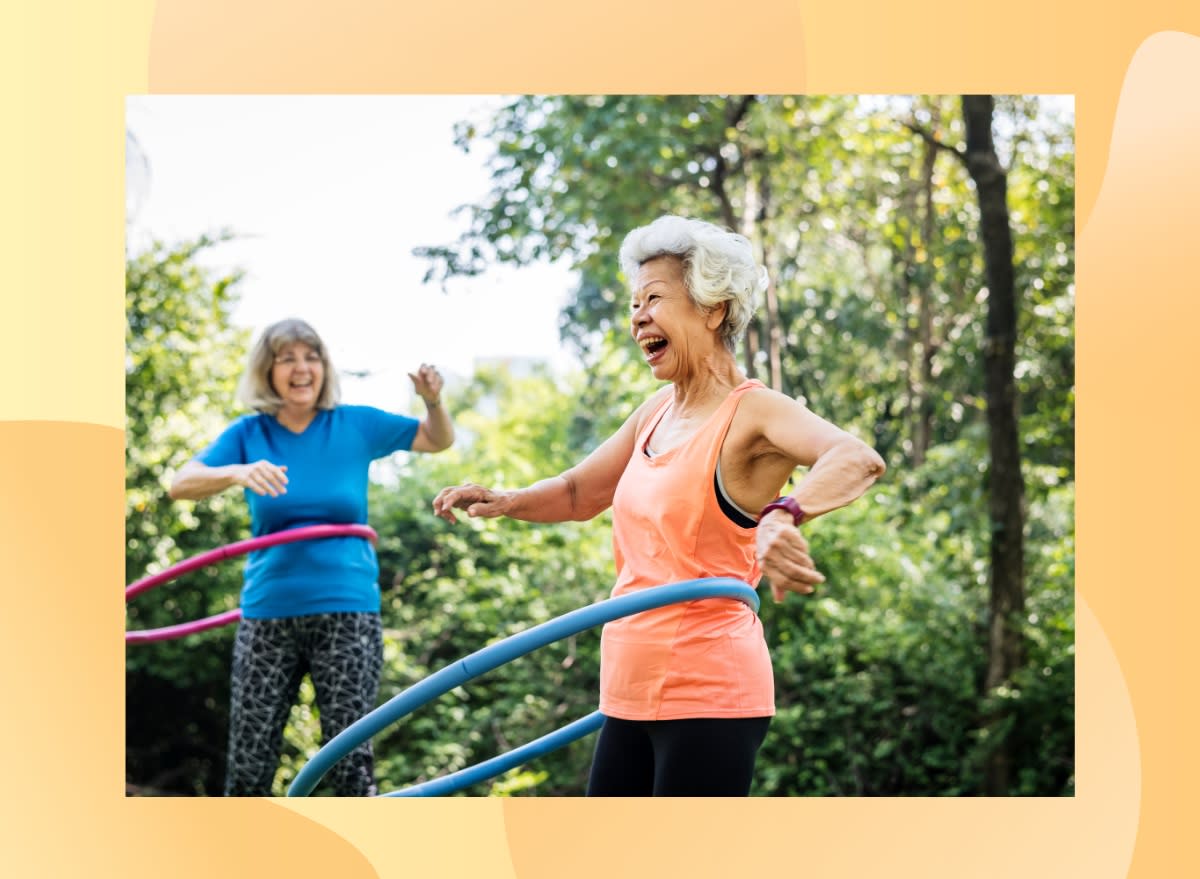
If you think staying fit in your 80s is about taking it easy, think again. Age is just a number, and maintaining fitness is all about embracing fun and functionality. Whether you're already an active senior looking to keep up the pace or someone who's considering getting more active, these tips to stay fit in your 80s are tailor-made for you.
Staying fit doesn't mean running marathons or hitting the gym for hours; it's about incorporating enjoyable, practical activities into your daily routine that keep your body strong and your spirit high. Get ready to find joy in movement, savor the small victories, and celebrate the incredible journey that has brought you to this point in life.
Below, I'm dishing out my 11 favorite tips for staying fit in your 80s and beyond. From enhancing mobility and building strength to dancing and meditation, this list has a few tricks for everyone. So, let's dive in and discover how you can keep moving, grooving, and feeling fantastic, no matter your age.
1. Embrace the morning stretch.

Movement is the best medicine. Start your day with a gentle stretch routine to wake up your muscles and joints. Stretching increases flexibility, improves circulation, and sets a positive tone for the day ahead.
Try simple stretches like reaching for the ceiling, touching your toes, and gentle neck rolls. Incorporating yoga poses like the cat-cow stretch can also help mobilize your spine. Just five to 10 minutes of stretching can make a world of difference in how you feel daily.
RELATED: 10 Yoga Exercises To Boost Mobility as You Age, According to a 63-Year-Old Instructor
2. Walk it out.
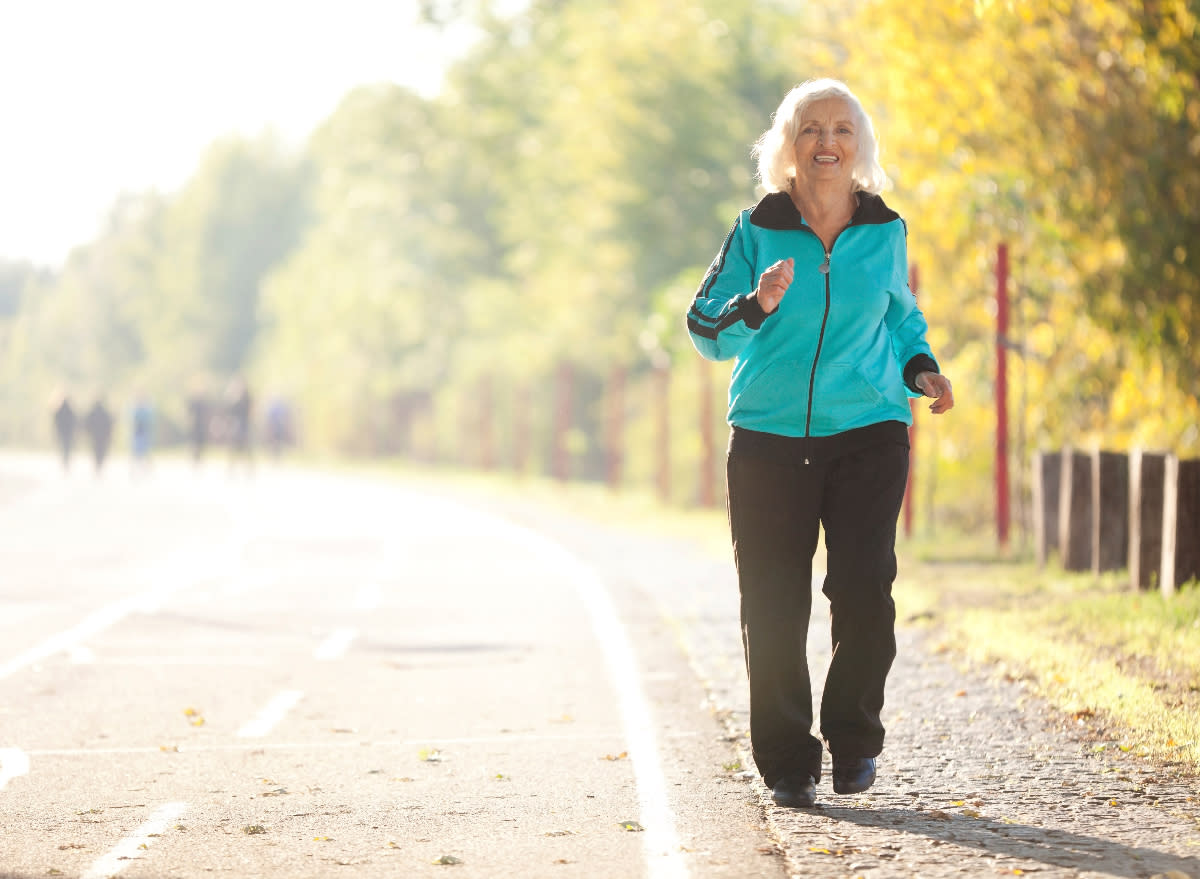
Walking is one of the best exercises at any age, but it's incredibly wonderful in your 80s. It's low-impact, strengthens your heart, and keeps your legs strong. Plus, it's a perfect opportunity to explore your neighborhood or catch up with friends.
Aim for at least 30 minutes daily—your body and mind will thank you. If 30 minutes at once feels too much, break it into shorter daily walks. Explore different routes to keep it interesting, or walk indoors at a mall or around your home if the weather isn't cooperating. You can even make it a social event by inviting a friend or joining a walking group, turning exercise into a fun and engaging activity.
3. Strength training is key.
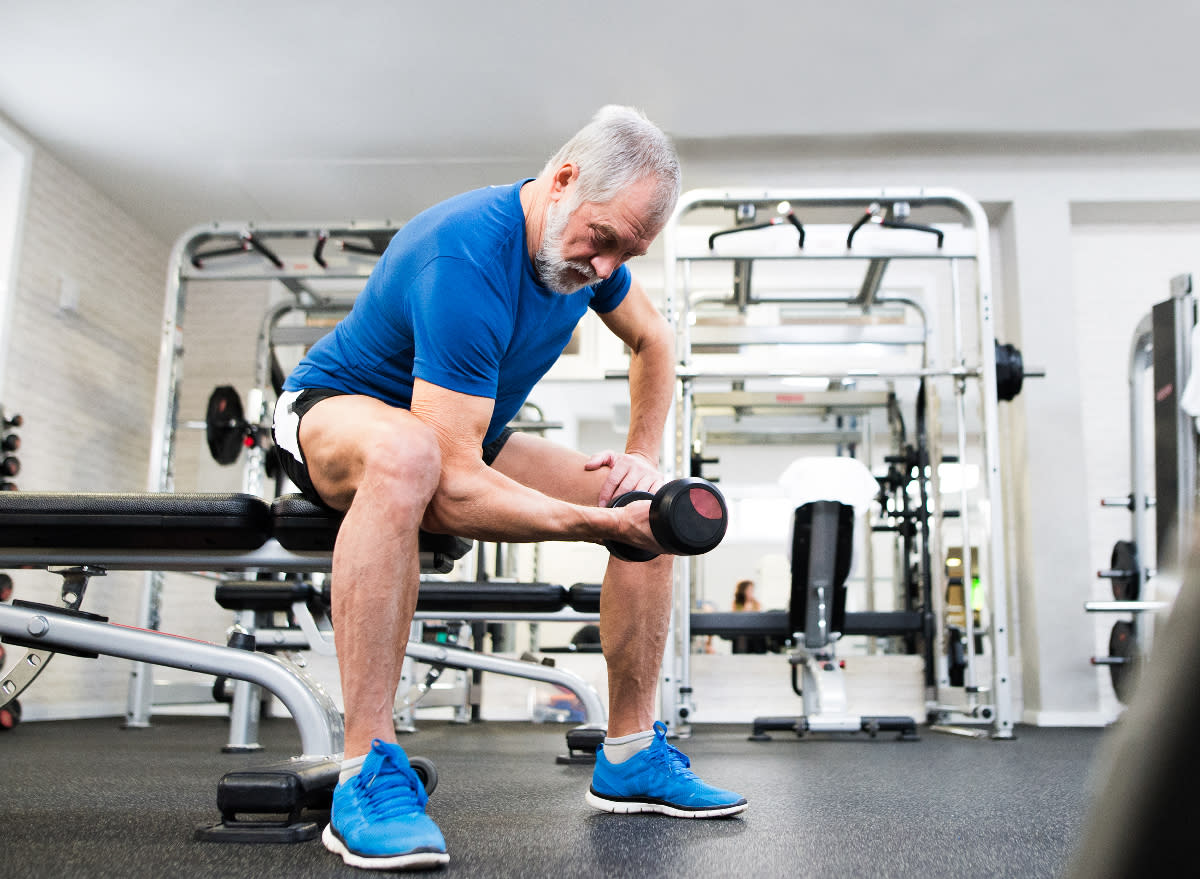
Light strength training helps maintain muscle mass, which naturally decreases with age.
Use small dumbbells, resistance bands, or even your body weight to keep your muscles strong. Start with light weights or resistance, gradually increasing as you become stronger. You'll feel more capable and confident in your daily activities, from carrying groceries to gardening.
In addition, focus on exercises that target major muscle groups, such as squats, lunges, deadlifts, pushups, and presses. And hey, it's always fun to show love to the smaller muscle groups—you can't go wrong with some bicep and tricep work.
Aim for two to three weekly strength training sessions, allowing your muscles to recover between workouts. Strength training enhances muscle strength and supports bone health, balance, and overall vitality.
RELATED: 10 Functional Strength Exercises To Boost Mobility as You Age
4. Hydrate, hydrate, hydrate.
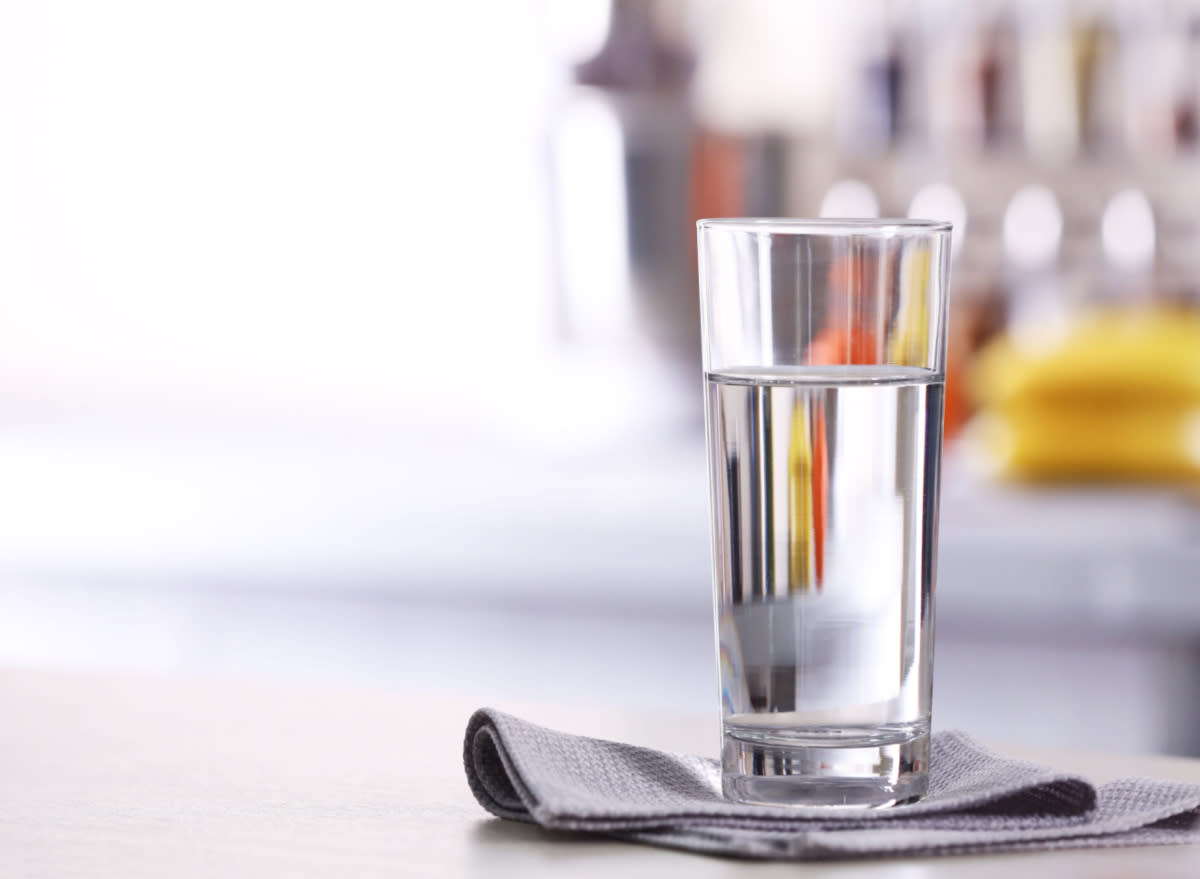
Keeping hydrated is crucial at any age, but it's easy to forget as you age. Staying hydrated helps maintain energy levels, supports digestion, and keeps your skin looking healthy.
Aim to drink at least eight glasses of water daily, and more if you're active or it's particularly hot outside. Carry a water bottle with you and take regular sips. And if plain water feels boring, infuse it with slices of citrus fruits, cucumber, or fresh mint for a refreshing twist.
Remember that if you're thirsty, you're already a bit dehydrated! Additionally, be mindful of caffeine and alcohol intake, as both can dehydrate your body.
5. Balance your way to success.
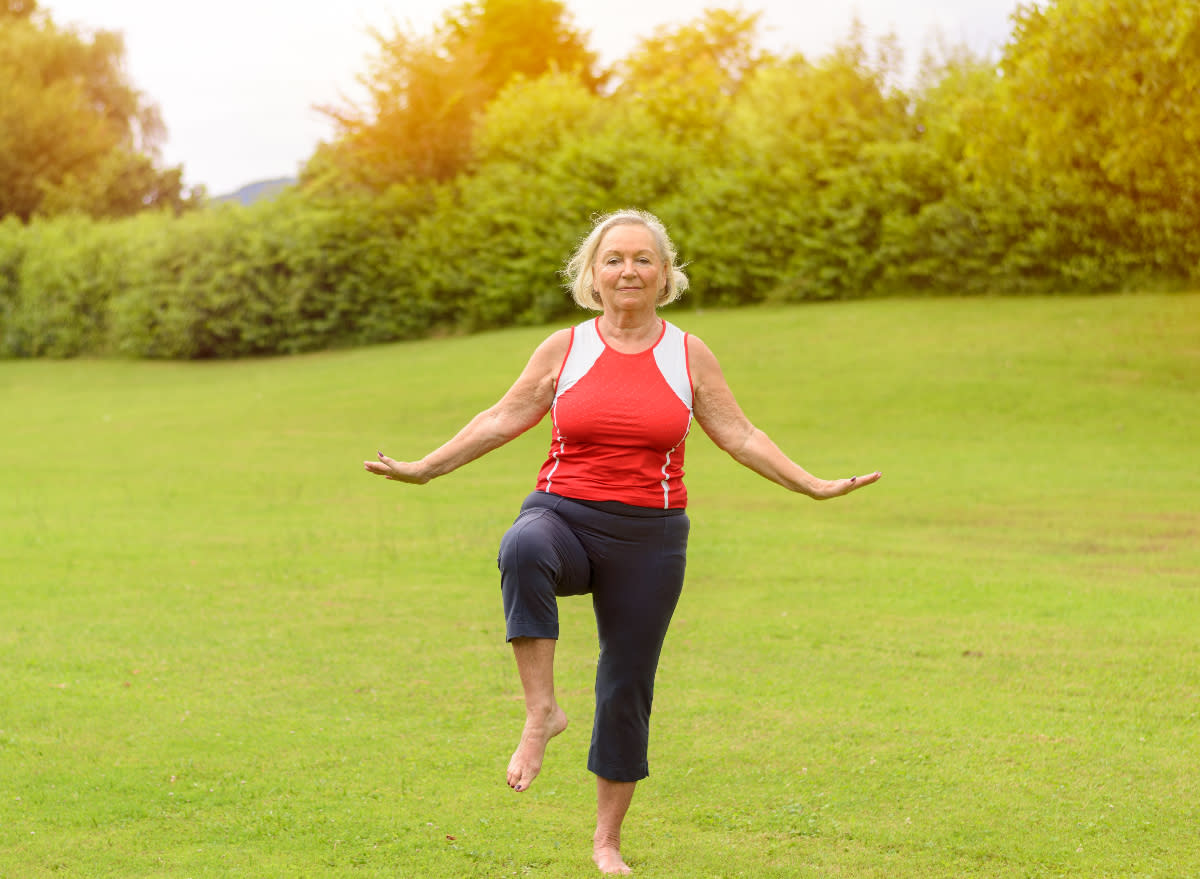
Balance exercises are fantastic for preventing falls, which can be a major concern as you age. Practice standing on one foot, walking heel-to-toe, or using a balance board. You can also incorporate activities like Tai Chi or yoga.
Hold each balance pose for a few seconds and gradually increase the duration as you get more comfortable. The more you practice, the better your balance will become, reducing the risk of falls and enhancing overall mobility.
RELATED: Are You Aging Well? These Mobility Tests Can Help You Find Out
6. Stay socially active.
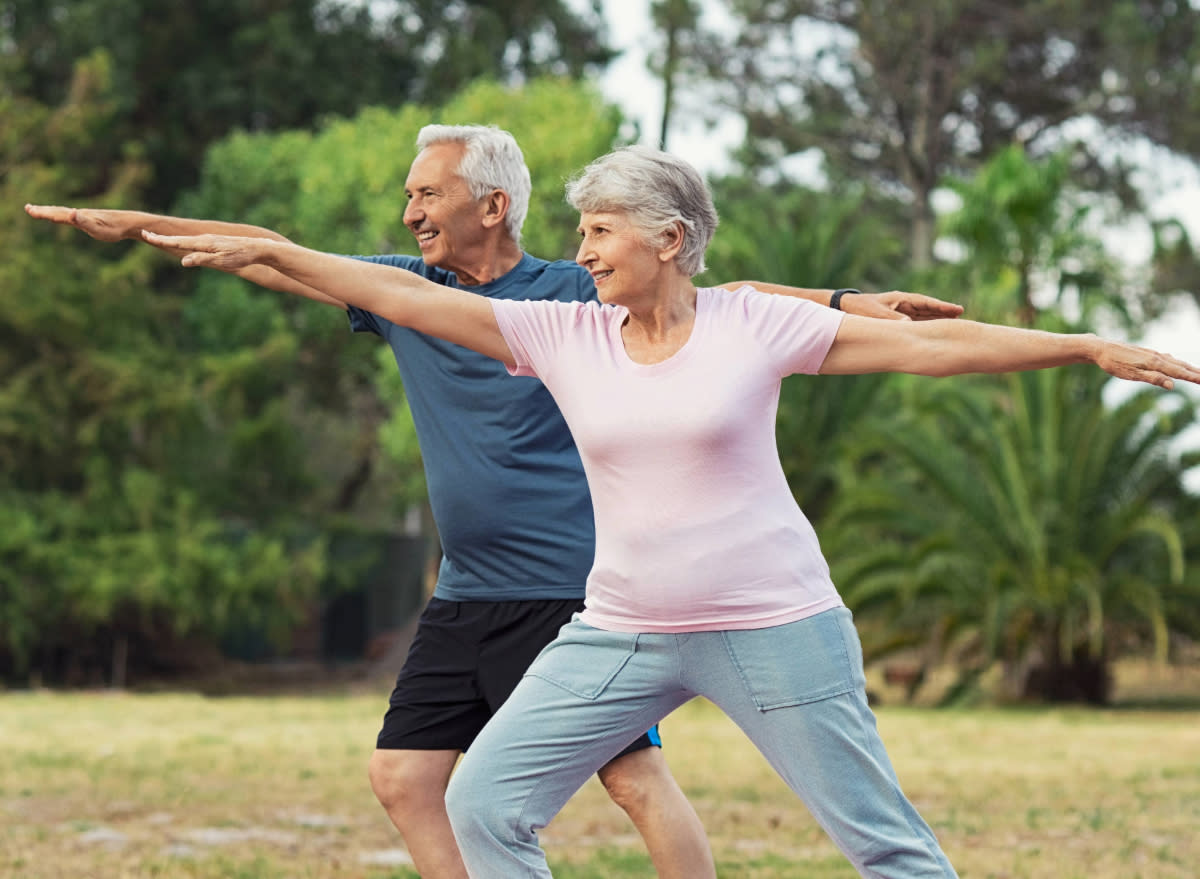
Fitness isn't just physical; staying socially active is vital to a healthy mind, keeping your brain sharp and your mood in good spirits.
Consider joining a fitness class, a walking group, or any community activity that gets you moving and mingling. Look for local clubs or groups that align with your interests, whether a book club, dance class, or gardening club. Volunteering is another fantastic way to stay active and socially engaged, giving back to the community while meeting new people.
7. Dance like no one's watching.
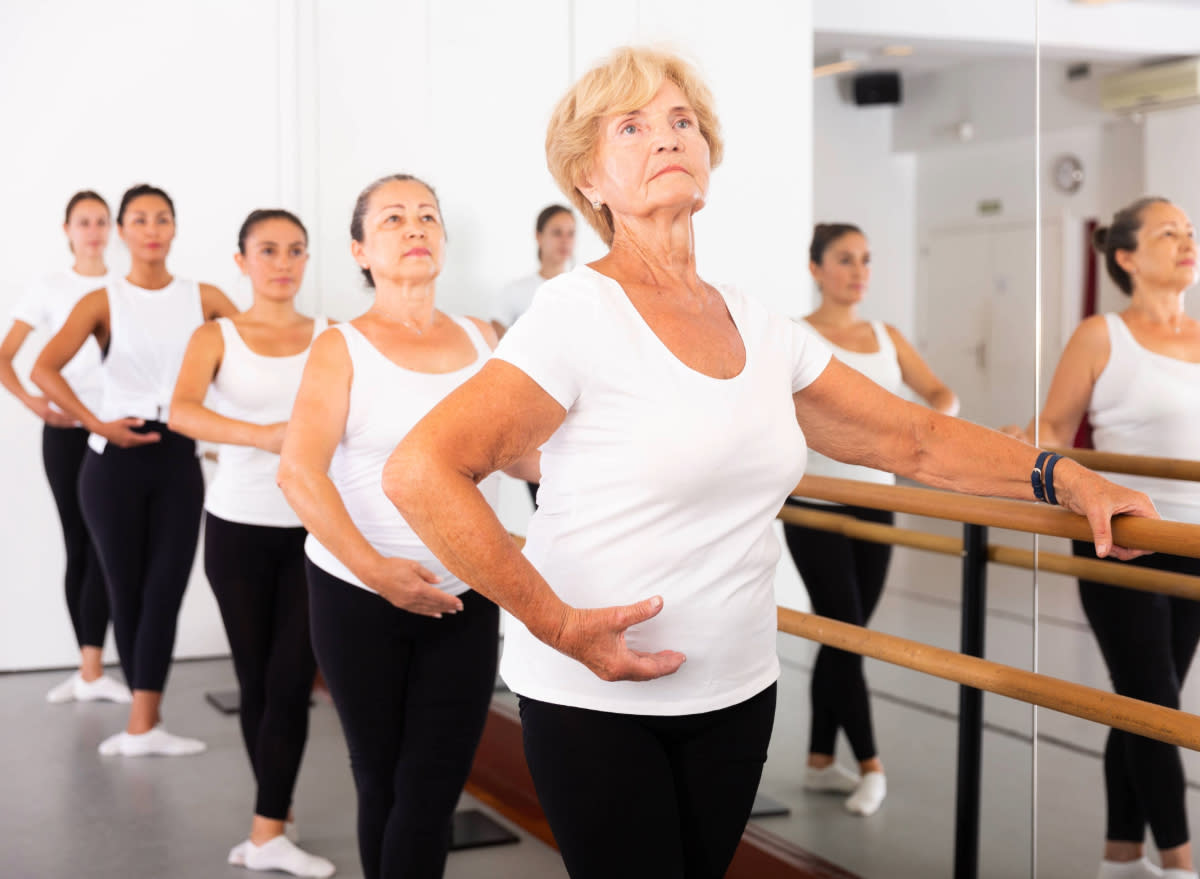
Put on your favorite tunes and dance around your living room. This form of physical activity is a beautiful way to get your heart rate up, improve coordination, and, most importantly, have a blast. It doesn't matter if you're doing the waltz or the twist—move and groove to the rhythm.
Consider trying different styles, such as salsa, swing, or line dancing. If you prefer a more structured approach, join a dance class or attend local dance events.
8. Mind your posture.
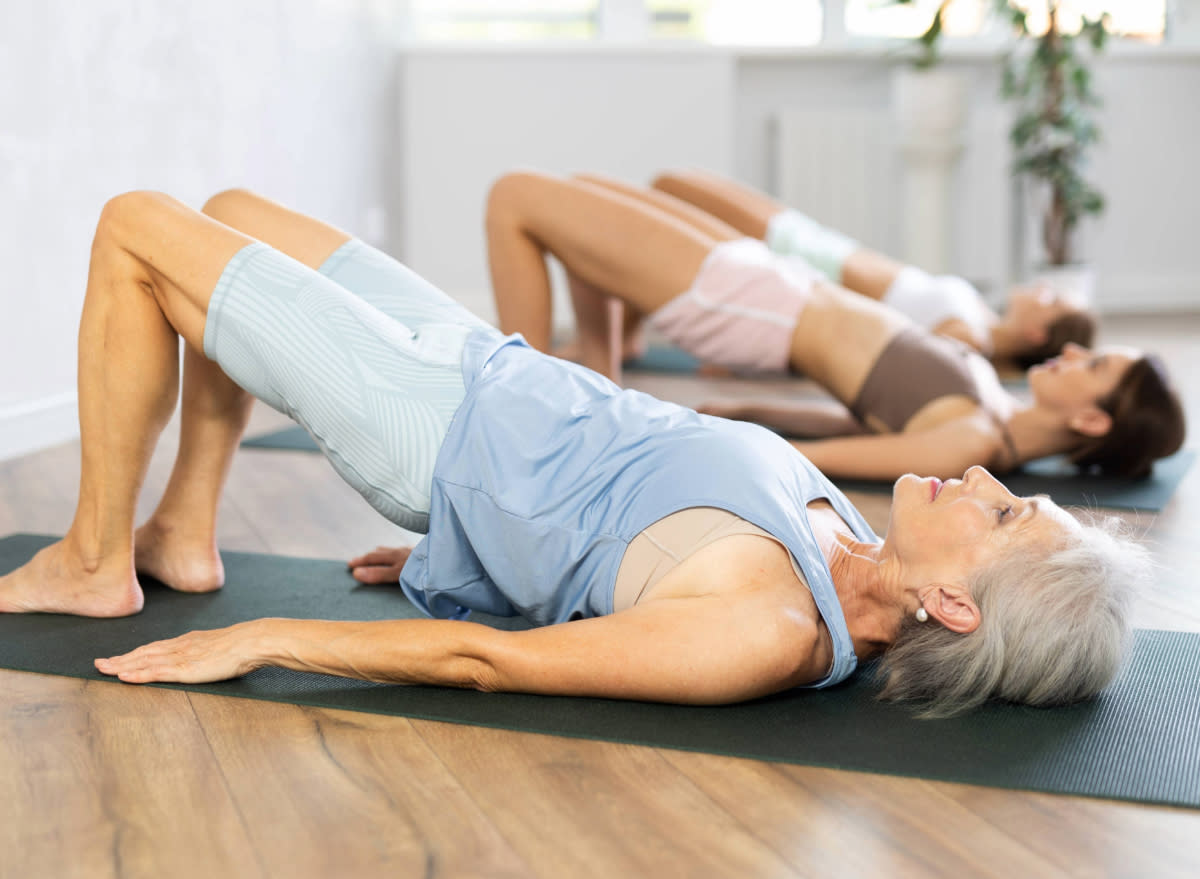
Good posture can work wonders for your overall health. It reduces strain on your body and helps you breathe better.
Focus on sitting and standing up straight, with your shoulders back and your head high. Imagine you're balancing a book on your head—a regal touch for your regal self!
In addition, incorporate exercises that strengthen your core and back muscles, such as planks and bridges, to support better posture. Remember, strength training is key.
RELATED: 5 Workouts You Should Be Doing Regularly in Your 70s
9. Eat for energy.
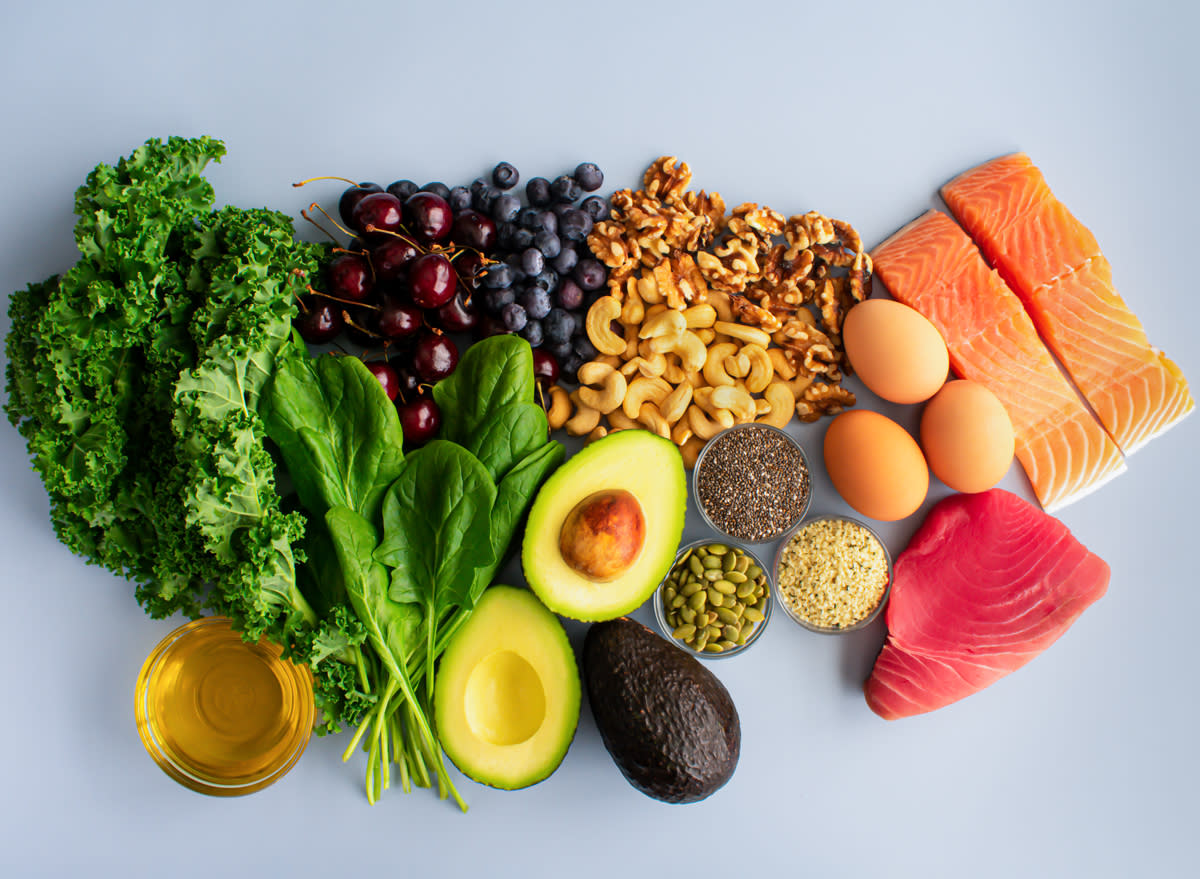
Nourish your body with a balanced diet rich in fruits, vegetables, lean proteins, and whole grains. These foods provide the energy and nutrients needed to stay active and healthy.
Don't forget healthy fats from sources like avocados, nuts, and olive oil, which support brain health and reduce inflammation.
In addition, incorporate various colors on your plate to ensure you get a wide range of nutrients. Pay attention to portion sizes and try to eat smaller, more frequent meals to keep your energy levels stable throughout the day.
10. Engage in mindful breathing and meditation.
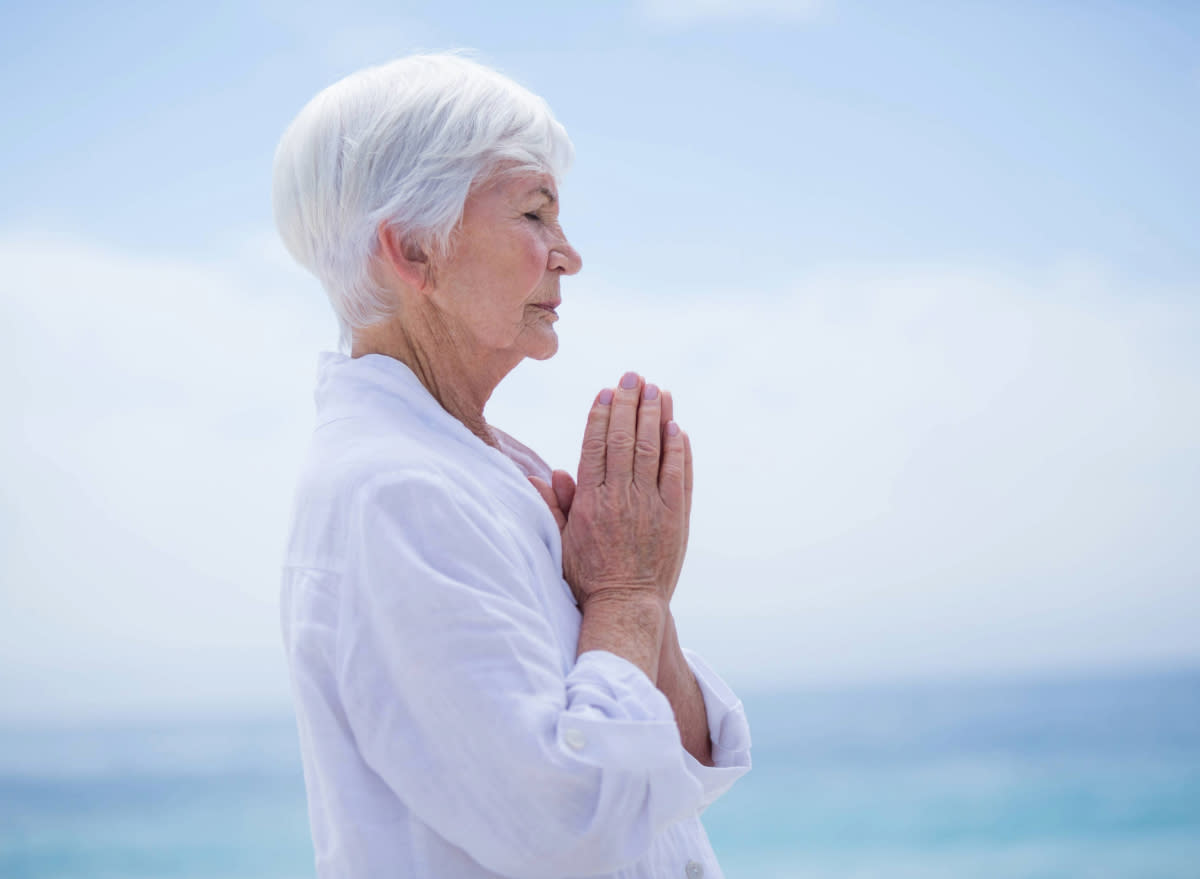
Take time each day to practice mindful breathing or meditation. These practices can reduce stress, lower blood pressure, and improve mental clarity.
Find a quiet, comfortable space to sit or lie down without distractions. Focus on your breath, inhaling deeply through your nose and exhaling slowly through your mouth. Guided meditation apps or videos can provide structure if you're new to the practice.
RELATED: 10 Tips To Improve Flexibility as You Age, According to Experts
11. Listen to your body.
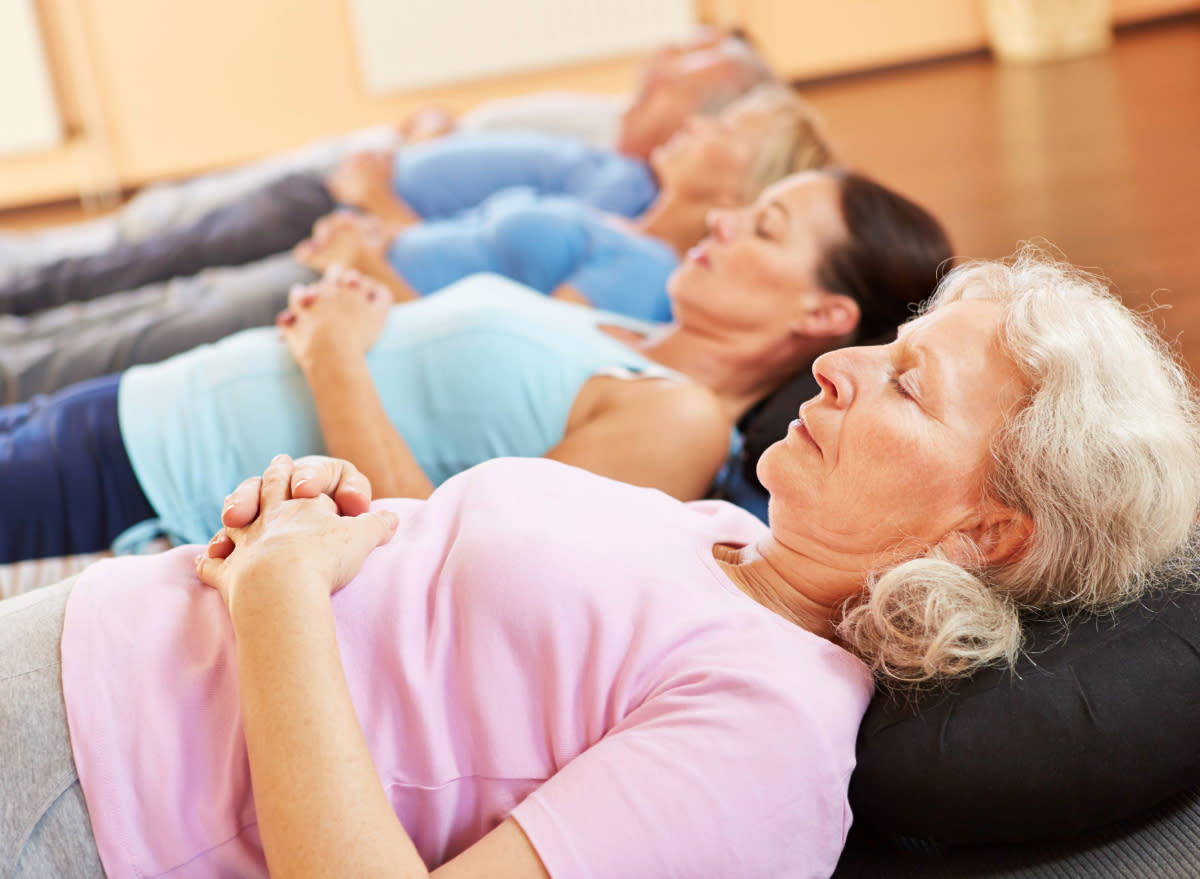
Lastly, always listen to your body. It's wise, and it will tell you when you need to rest or when you can push a little harder. Don't ignore aches and pains—address them with your healthcare provider.
Staying fit is a marathon, not a sprint, especially in your 80s and beyond. Pay attention to signals such as fatigue, discomfort, or unusual symptoms. Adjust your activities accordingly and ensure you get plenty of rest and recovery.
Remember, the goal is to maintain a sustainable and enjoyable fitness routine that enhances your quality of life. Embrace the journey, celebrate your progress, and be kind to yourself.










